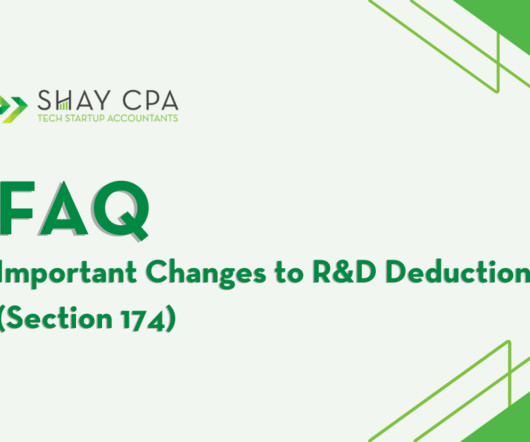Important Changes to R&D Deductions (Section 174) – FAQ
Shay CPA
MARCH 22, 2023
R&D Expenditure Capitalization Rules (New for 2022) The TCJA amended Section 174 relating to the federal tax treatment of research or experimental expenditures paid or incurred during the taxable year. will no longer be able to deduct 100% of their expenses starting in 2022 and for future year tax years.












Let's personalize your content